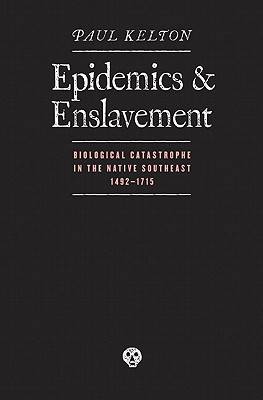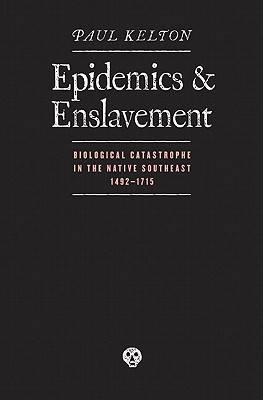
- Afhalen na 1 uur in een winkel met voorraad
- Gratis thuislevering in België vanaf € 30
- Ruim aanbod met 7 miljoen producten
- Afhalen na 1 uur in een winkel met voorraad
- Gratis thuislevering in België vanaf € 30
- Ruim aanbod met 7 miljoen producten
Zoeken
€ 34,95
+ 69 punten
Omschrijving
Epidemics and Enslavement is a groundbreaking examination of the relationship between the Indian slave trade and the spread of Old World diseases in the colonial southeastern United States. Paul Kelton scrupulously traces the pathology of early European encounters with Native peoples of the Southeast and concludes that, while indigenous peoples suffered from an array of ailments before contact, Natives had their most significant experience with new germs long after initial contacts in the sixteenth century. In fact, Kelton places the first region-wide epidemic of smallpox in the 1690s and attributes its spread to the Indian slave trade. From 1696 to 1700, Native communities from the Atlantic Coast to the Mississippi Valley suffered catastrophic death tolls because of smallpox. The other diseases that then followed in smallpox's wake devastated the indigenous societies. Kelton found, however, that such biological catastrophes did not occur simply because the region's Natives lacked immunity. Over the last half of the seventeenth century, the colonies of Virginia and South Carolina had integrated the Southeast into a larger Atlantic world that carried an unprecedented volume of people, goods, and ultimately germs into indigenous villages. Kelton shows that English commerce in Native slaves in particular facilitated the spread of smallpox and made indigenous peoples especially susceptible to infection and mortality as intense violence forced malnourished refugees to huddle in germ-ridden, compact settlements. By 1715 the Native population had plummeted, causing a collapse in the very trade that had facilitated such massive depopulation.
Specificaties
Betrokkenen
- Auteur(s):
- Uitgeverij:
Inhoud
- Aantal bladzijden:
- 312
- Taal:
- Engels
- Reeks:
Eigenschappen
- Productcode (EAN):
- 9780803227910
- Verschijningsdatum:
- 1/07/2009
- Uitvoering:
- Paperback
- Formaat:
- Trade paperback (VS)
- Afmetingen:
- 152 mm x 229 mm
- Gewicht:
- 462 g

Alleen bij Standaard Boekhandel
+ 69 punten op je klantenkaart van Standaard Boekhandel
Beoordelingen
We publiceren alleen reviews die voldoen aan de voorwaarden voor reviews. Bekijk onze voorwaarden voor reviews.








